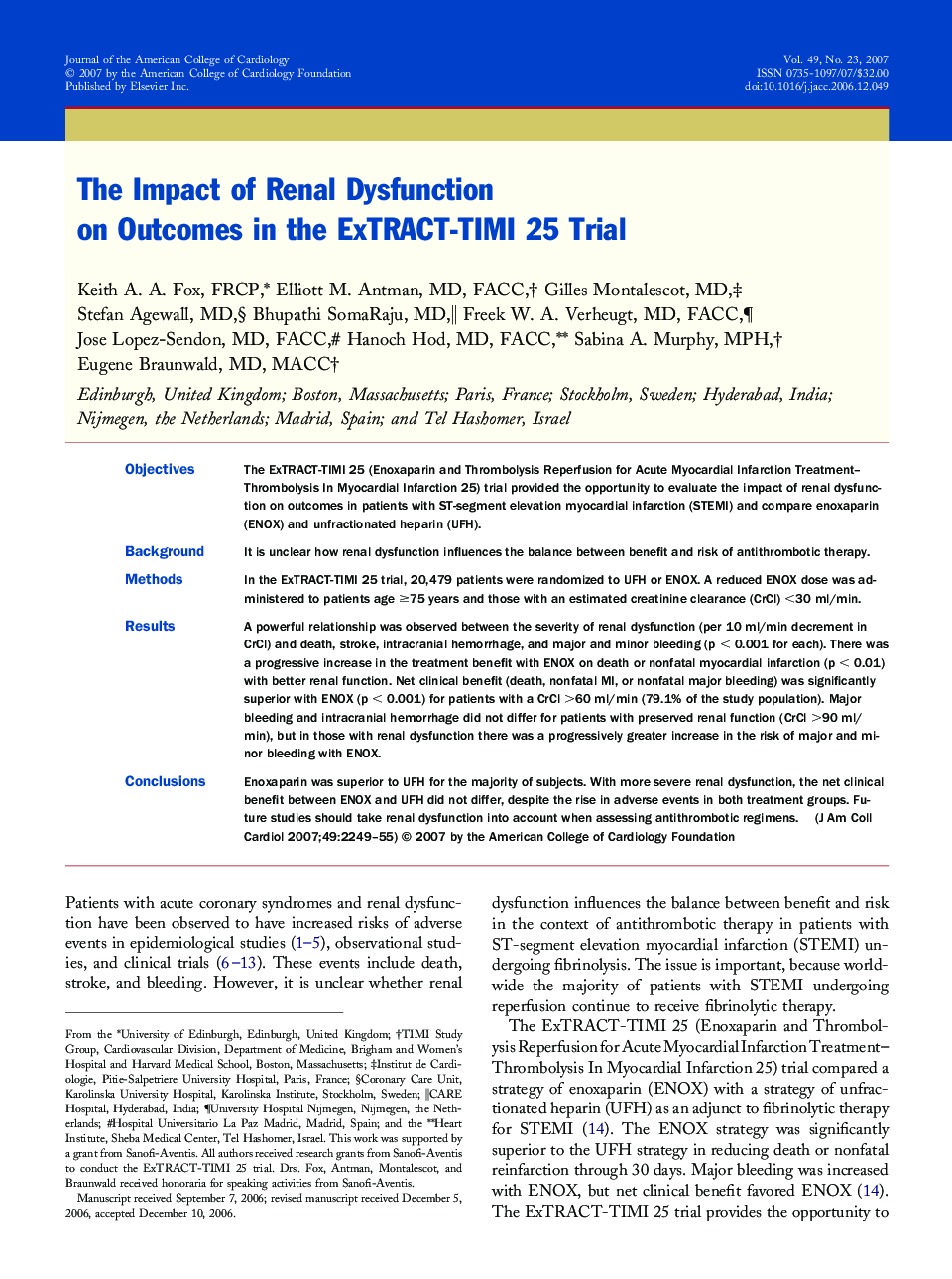| Article ID | Journal | Published Year | Pages | File Type |
|---|---|---|---|---|
| 2953153 | Journal of the American College of Cardiology | 2007 | 7 Pages |
ObjectivesThe ExTRACT-TIMI 25 (Enoxaparin and Thrombolysis Reperfusion for Acute Myocardial Infarction Treatment–Thrombolysis In Myocardial Infarction 25) trial provided the opportunity to evaluate the impact of renal dysfunction on outcomes in patients with ST-segment elevation myocardial infarction (STEMI) and compare enoxaparin (ENOX) and unfractionated heparin (UFH).BackgroundIt is unclear how renal dysfunction influences the balance between benefit and risk of antithrombotic therapy.MethodsIn the ExTRACT-TIMI 25 trial, 20,479 patients were randomized to UFH or ENOX. A reduced ENOX dose was administered to patients age ≥75 years and those with an estimated creatinine clearance (CrCl) <30 ml/min.ResultsA powerful relationship was observed between the severity of renal dysfunction (per 10 ml/min decrement in CrCl) and death, stroke, intracranial hemorrhage, and major and minor bleeding (p < 0.001 for each). There was a progressive increase in the treatment benefit with ENOX on death or nonfatal myocardial infarction (p < 0.01) with better renal function. Net clinical benefit (death, nonfatal MI, or nonfatal major bleeding) was significantly superior with ENOX (p < 0.001) for patients with a CrCl >60 ml/min (79.1% of the study population). Major bleeding and intracranial hemorrhage did not differ for patients with preserved renal function (CrCl >90 ml/min), but in those with renal dysfunction there was a progressively greater increase in the risk of major and minor bleeding with ENOX.ConclusionsEnoxaparin was superior to UFH for the majority of subjects. With more severe renal dysfunction, the net clinical benefit between ENOX and UFH did not differ, despite the rise in adverse events in both treatment groups. Future studies should take renal dysfunction into account when assessing antithrombotic regimens.
